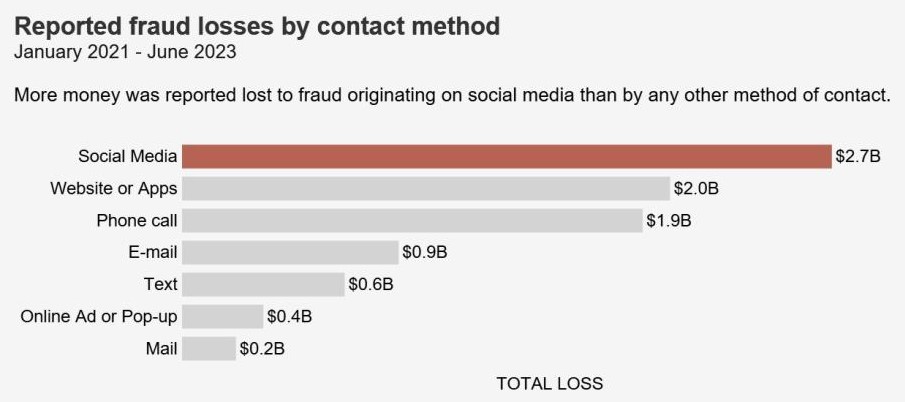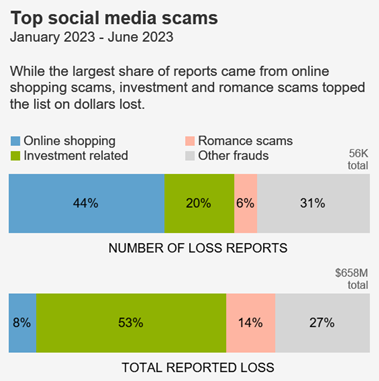Avast warns of surging financial scams on Facebook and Instagram
Avast Software, a Czech multinational cyber security software developer, has warned users of its products that Avast threat lab experts have noticed “a worrying trend in the frequency of financial scams on social media sites like Facebook and Instagram.”
The software vendor, which sends out regular alerts on new threats, said that social media platforms have become hotbeds of fraudulent scams, pointing especially to Facebook and Instagram. Fraudsters use popular figures of well-known companies to trick people into thinking they are genuine or trustworthy, promising quick and big money.

“If you see an ad where someone is offering free money, it’s probably a scam. Don’t share your email or phone number carelessly: you could be hounded by other scams going forward,” the Avast notice reads.
NewsCafe experiment
A NewsCafe reporter has clicked on one such ads to see what happens. The Russian-language ad on Instagram featured the logo of Meta - the parent company of Facebook, Instagram, Messenger, and WhatsUp - and an employment opportunity at a Meta regional office in Europe.
The link opened a web page without whatsoever relations to Meta or its associated services. Our reporter was instructed to leave his full name, email address, and phone number, allegedly for a recruitment officer to get back for an interview. The next page asked more details about the applicant’s interests, past work experience, and family budget insights – and yet displayed no details about the offered job.
More to read:
Meta deploys an intricate web of chatbots to learn more about current account holders
Our colleague stopped the registration process and closed the page before it was too late. However, the ordeal has only began. Soon he received a phone call from an unknown man who spoke Russian and proposed an investment into crypto assets. The reporter apologized and explained that he changed his mind and didn’t actually need the job or investment guidance.
He asked not to be bothered again.
The next day the phone rang up again, from another number, and another man asked for a discussion on business opportunities. Our colleague replied that he he has realized it was a scam. Again, he asked not to be bothered with new calls.
More to read:
Meta unveils smart glasses that let you spy and talk to AI
Nonetheless, he received phone calls almost daily ever since, sometimes twice a day, from different numbers. He then called back on some numbers and the people who picked up didn’t speak Russian at all and denied having ever called our colleague.
All numbers were randomly generated by an encryption machine, using the country code and real numbers of mobile service users, cybersecurity experts told NewsCafe. There’s no point calling fraudsters back – they won’t see the call.
Whether the fraudsters will keep or stop calling is a blind bet. As a matter of fact, the data collected from our colleague is passed (or sold) on to other scam planners and they might keep trying as long as someone answers the call.
More to read:
Meta’s voice replicating AI is a dangerous security loophole
Ultimately, the Facebook account of our reporter got hacked and started sending scam content to his friends.
Meta is the most vulnerable
Social media gives scammers an edge in several ways. They can easily manufacture a fake person, or hack into user’s profile, pretend to be you, and con your friends. They can learn to tailor their approach from what you share on social media. And scammers who place ads can even use tools available to advertisers to methodically target you based on personal details, such as your age, interests, or past purchases, according to a report of the U.S. Federal Trade Commission.

Credit: FTC
This costs them next to nothing to reach billions of people from anywhere in the world.
Social media platforms account for more than 12% of online crimes, says the October 2023 report, which covers the period January to June 2023.
Of the people who reported which social media site they were scammed on about undelivered merchandize, 60% occurred on Facebook, while 24% occurred on Instagram.
Cryptocurrency was identified as the payment method in 53% of investment-related fraud reports that indicated social media as the method of contact. Facebook and Instagram were each identified in 21% of these reports, followed by Snapchat at 8%.

Credit: FTC
But why misleading and deceptive ads are abundant on Facebook and Instagram?
It turns out that Meta easier than other social media companies accepts such ads or fails to filter ad content effectively. The bots it employs do not verify the content or identity of advertisers, and things have gotten worse since it laid off thousands of human checkers and assigned other tasks of remaining ones.
By the time of publication of this piece, Meta has not replied our queries for help while its account recovery process is a mess.
Other scam-friendly social media platforms are X (former Twitter), Telegram, TikTok, and SnapChat.
Russians are especially active in scam organizations since their country has been hit by sanctions and their revenues, respectively, have dropped, but it’s not necessarily true to claim they are the largest group of scammers, NewsCafe learned.
***
NewsCafe is a small, independent outlet that cares about big issues. Our sources of income amount to ads and donations from readers. You can buy us a coffee via PayPal: office[at]rudeana.com.







